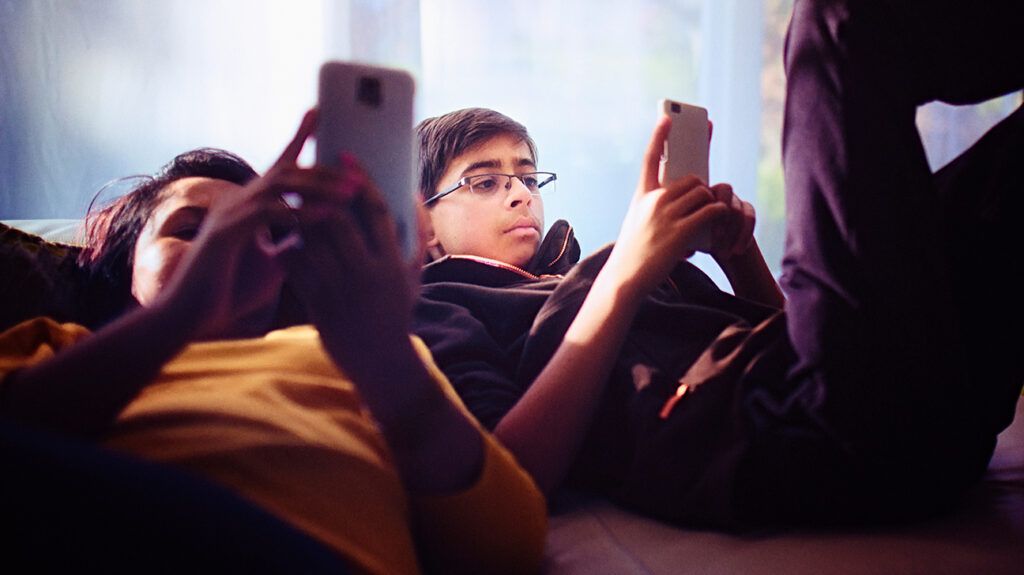The rapid growth of technology reflects the expanding scope of cyberbullying. One may experience psychological effects such as depression, low self-esteem, and anxiety.

According to a 2020 study,
A large 2021 study indicates that mental health conditions, such as depression, anxiety, and substance use, may predict greater chances of cyberbullying for adults, especially men.
But more research is needed to support these findings.
Cyberbullying can include spreading rumors or lies about someone or sharing private details that could be embarrassing or shameful. It can occur in spaces, such as:
- text messages
- posting photos or videos on internet sites
- social media
- gaming networks
- chat rooms and online forums
- other digital spaces
Cyberbullying is when someone intentionally tries to harm another person with increasing aggression by expressing mean and hurtful things via electronic devices.
Such actions may snowball quickly on the internet and “go viral,” further compounding psychological stress felt by the person targeted by the bullying.
Cyberbullying in adults and children may lead to or increase the chances of:
- depression
- anxiety
- loneliness
- suicidal ideation
- low self-esteem
- social isolation
- substance use
- sadness
Today’s youth are particularly vulnerable. Many teens, even younger kids, spend endless hours connected to the internet with their phones, computers, or other digital devices.
A
A kid bullied on a playground might find a haven at home where they feel the protection of parents and family members.
It’s different in cyberspace because bullying can live on, become persistent, and even permanent.
Because it happens online, it may go unnoticed by responsible adults who might otherwise be able to step in and help, notes the government website Stopbullying.gov.
Suicide Prevention
If you or someone you know is considering suicide or self-harm, you’re not alone, and help is available.
Calling or texting a crisis helpline will connect you with a trained counselor 24/7, any day of the year, completely free of charge:
- Call the National Suicide Prevention Lifeline at 800-273-8255.
- Text HOME to 741741 to reach the Crisis Text Line.
While some kids may not show any signs of being cyberbullied, experts advise parents to watch for significant shifts in their child’s behavior or habits.
For example, checking social media more frequently than usual could signal something is wrong.
Consider keeping communication lines open by asking your child what they know about cyberbullying and if they’ve ever experienced it.
Changes in a child that may indicate cyberbullying include:
- difficulty sleeping
- nightmares
- skipping school
- feeling helpless
- loss of self-esteem
- stomachaches
- headaches
Adults may also notice emotional symptoms, such as:
- anxiety
- embarrassment
- frustration
- their child is unable to talk about their feelings
The younger a child is, the more likely they’ll mention vague physical health issues rather than articulate an emotion.
Some children may become aggressive as they don’t have an outlet for these new and uncomfortable emotions.
Recognizing aggressive behaviors that are out of character may point to possible difficulties with cyberbullying.
Parents can help children avoid or prevent cyberbullying by talking with them about being careful not to post photos or private information online. Especially content that they wouldn’t share with their parents.
Kids can prevent cyberbullying by adopting these strategies from Stopbullying.gov:
- report cyberbullying to your parents or another responsible adult
- only accept an online friend or network requests from someone you know
- consider not taking part in “sexting” by sending texts or photos with sexual content
If the effects of cyberbullying impact you, consider the following coping methods:
- Don’t directly respond to or retaliate against cyberbullying because that might be the reaction the bully seeks.
- Report cyberbullying to parents, teachers, or authorities if warranted.
- Block cyberbullies or anyone who acts questionably from your online accounts.
- Unplug from social media. Taking a break can improve your mental perspective and relieve anxiety.
Research has shown that cyberbullying can adversely affect a person’s mental health. Cyberbullying can lead to anxiety, social isolation, and additional psychological stress that can worsen with repeated abuse.
Consider talking with your children about the risks of cyberbullying. As well as recognizing and reporting it and how to prevent it from happening again.
Social media is a space where young people gather with their friends for fun and entertainment.
Helping your children deal with tougher aspects of being online such as cyberbullying, can teach resilience. Your child may also feel more comfortable socializing with peers in the real world and the digital one.
If you’re seeking support, check out Psych Central’s guide for a list of mental health resources.
